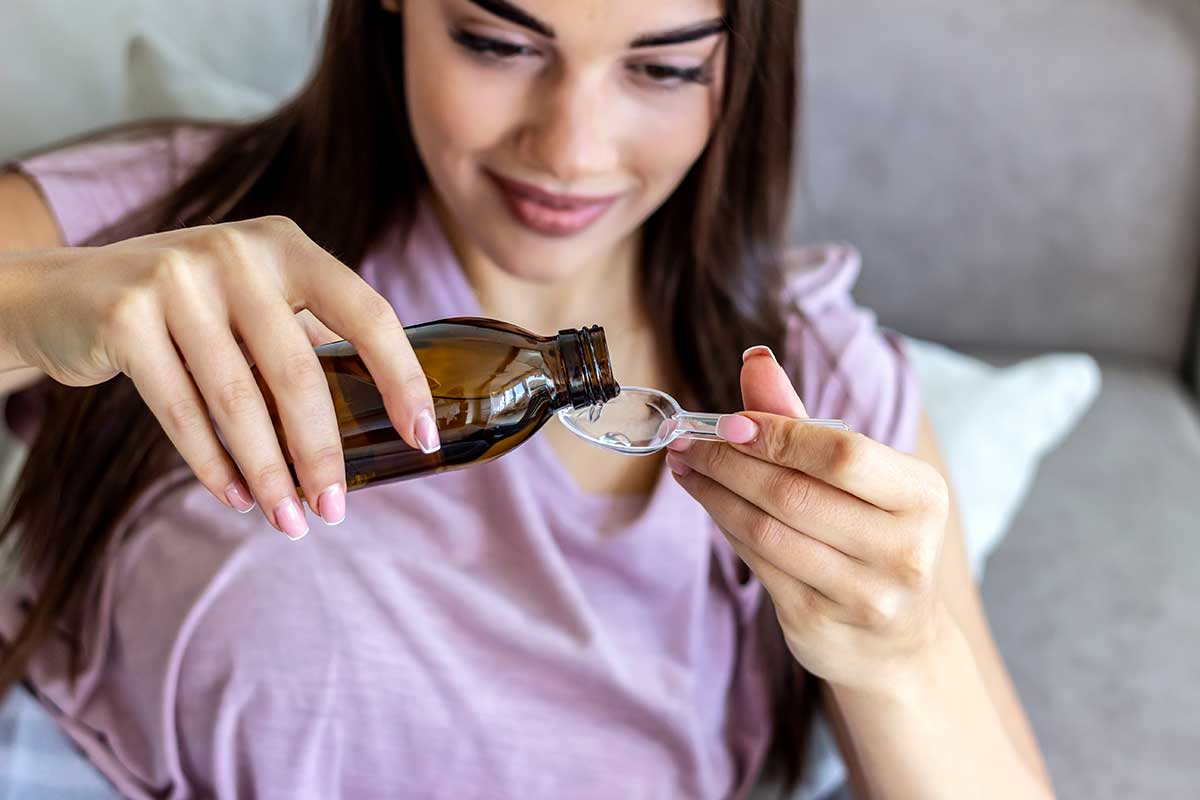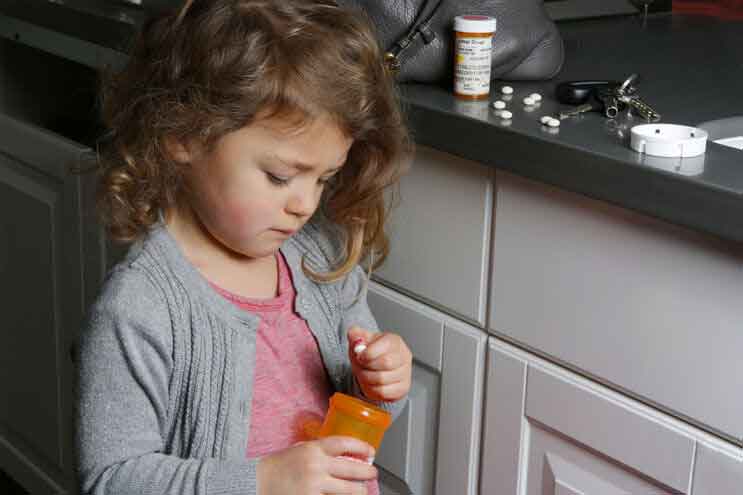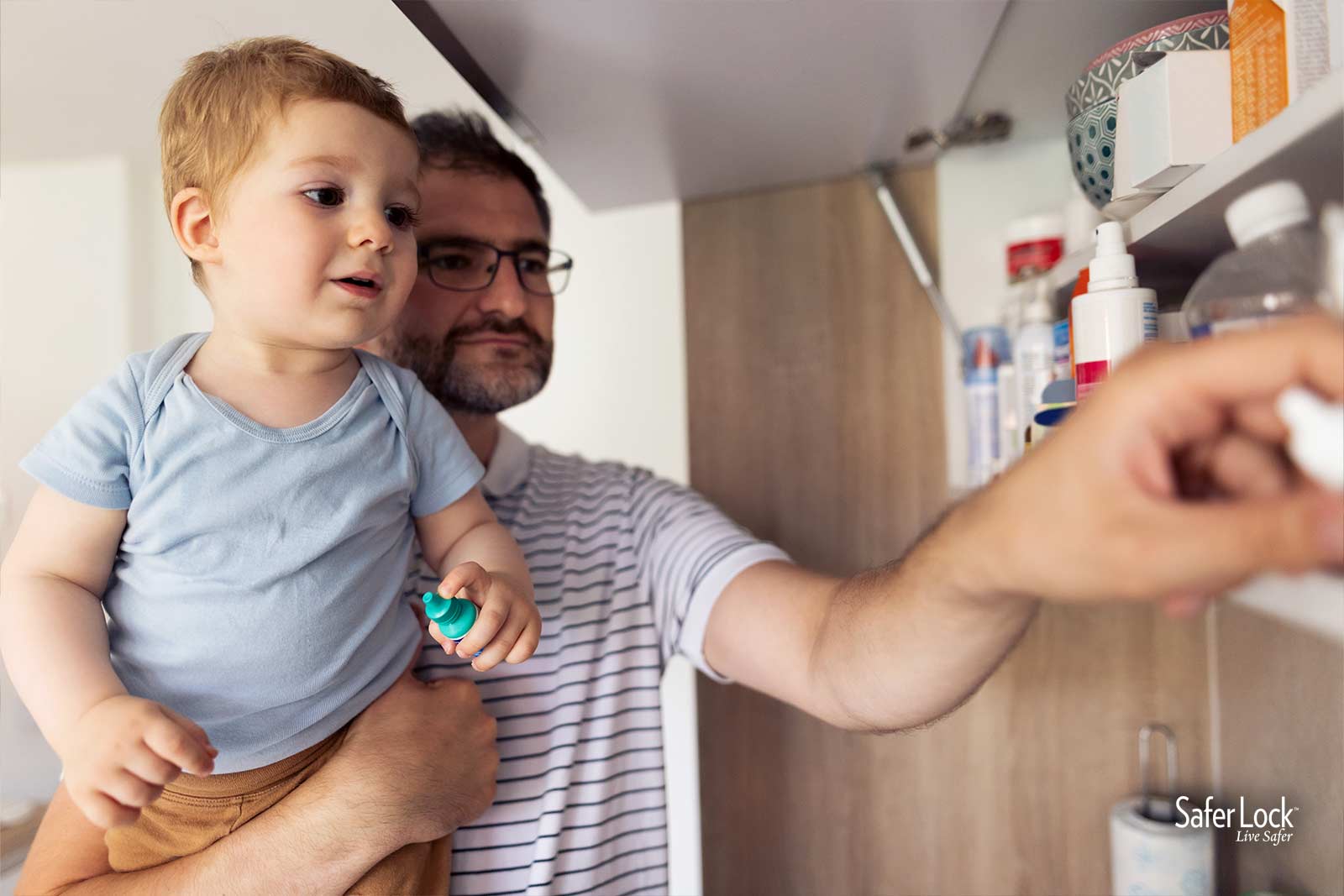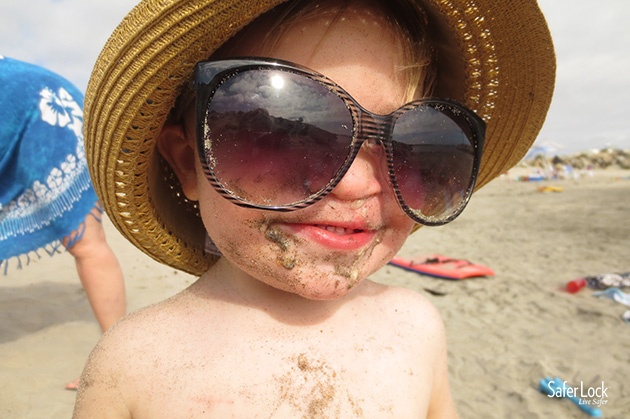You do everything you can to keep your kids safe from the dangers of alcohol, tobacco, and illicit drugs. You’ve started locking up the powerful prescription medications in your home. But did you know that securing your over-the-counter (OTC) medications also plays a role in safeguarding your kids?
Cough syrups and other OTC medications may contain DXM, a dangerous ingredient present in many products available without prescription.
However, in high doses, this readily available drug can be extremely dangerous.
DXM is a dissociative drug. Taking too much has an effect similar to ketamine or PCP.
One in every four teenagers knows someone who has abused OTC cough or cold medications to get high.
The rate of OTC medicine abuse is highest amongst younger teens — 8th graders abuse cough medicine at a higher rate than 10th or 12th graders, who are more likely to be experimenting with illicit drugs.
Cough and cold medications are easily accessible in nearly every home, as well as at grocery stores, gas stations, and pharmacies.
So, how do you keep your kids safe from something that can be found just about everywhere?
Talk to your kids about the dangers of OTC drugs, and keep them from experimenting by storing all of your medications safely and securely. Lock up your prescription and OTC medications in a locking medicine box.
10 Signs That You Need A Medicine Box For Your OTC Medicine
If you’re wondering if you need to be worried about your OTC medications, look out for these ten signs that it might be time to invest in a medicine lock box.
#1: You’re worried your teens might experiment with drugs.
If you’re the cautious type, a locking medicine box might be just the thing to help you keep your kids safe and give you peace of mind.
After all, there may not be any warning signs before your kids start experimenting with substance abuse. OTC cough and cold medications and powerful prescription drugs are often easily accessible at home in medicine cabinets, purses, and on bedside tables.
Prevention is the best way to keep your family safe. That’s why it’s important to practice medicine safety and talk to your kids about the dangers of OTC medications.
Medicine lock boxes are most effective as a tool for addiction prevention. They can keep your OTC meds out of sight and secure from kids and teens who might be tempted to take too much or sneak some “just one time” to see what it’s like.
#2: You have small children in the house.
Picture this: some cough syrup gets left out on the counter. Your kid doesn’t know that it’s dangerous, but they do know that it tastes like yummy grape or cherry candy.
Accidents happen all the time.
Medicine lock boxes may be the barrier that prevents a tragic mistake from happening to your child.
If your small children are getting to that age where everything is a potential toy, use a lock box to keep dangerous medications away from curious fingers. Safe medicine storage is an important part of child-proofing your home.
#3: You’ve noticed medication going missing.
Keep an eye on how much cough syrup you have lying around.
- Have you found empty medicine boxes in the trash?
- Unsure about how the bottle of cough syrup got so low?
Missing medication is a telltale sign that someone in the house is abusing or experimenting.
You’ll also want to keep an eye on your medicine cabinet after one of your kids gets over a cold. DXM, a common ingredient in OTC cough syrups, can be addictive.
Someone who starts taking cough syrup for a cold can become addicted if they overdo it.
#4: Your kids aren’t interested in their favorite activities.
This sign is arguably the easiest to spot.
If your kids are struggling with activities they used to enjoy or suddenly skipping soccer practice, it could be a sign that something more serious is going on.
Studies have shown that behavioral changes are one of the earliest warning signs of teen substance use.
Other signs can include a sudden or gradual change in friends and withdrawal from family activities.
#5: Your teen has been more hostile or moody than usual.
We know, we know. It feels like your teen is hostile and moody all the time. Puberty and high school are tough. A certain amount of moodiness is to be expected.
But look out for hostility or mood swings that are out-of-character, as this can be a symptom of substance use. Some substances can cause uncharacteristic behavior, such as unusual and violent outbursts.
#6: You’ve heard your kids using OTC medication slang.
Keep an ear open for slang terms for OTC meds or medication abuse. Words to listen for include:
- Drank
- Skittles
- Skittling
- Robo
- Robo-tripping
- Vitamin D
#7: Your teen has friends you don’t know over.
Has your teen been hanging out with a new crowd lately?
It’s great to see your kids making new friends, but it’s also completely natural to be worried about having people you don’t know in your house.
Take the time to get to know your kids' friends. One of the signs of drug addiction is replacing old friends with new ones. Teens are heavily influenced by their peers, so if your kid dropped their old friends for a new group without explanation, it may be a sign of substance abuse.
Even if your teen and their friends are all great kids, teens do get curious. You can’t always tell who might be tempted to take some cough syrup from the medicine cabinet. It’s much safer to keep it stored securely, locked up, and out of sight.
Unsecured medication is at risk for theft. If your kids have new people over regularly, use a medicine lock box to store your meds.
#8: You think your teen has been drinking.
OTC medicines are even more dangerous when abused in combination with alcohol or other drugs.
Almost half of all teens (47.5%) use alcohol.
Mixing OTC medications with alcohol can have serious side effects. According to the National Institute on Alcohol Abuse and Alcoholism, mixing alcohol with OTC medications such as cough and cold medicines can lead to:
- Nausea and vomiting
- Dizziness
- Headaches
- Drowsiness
- Fainting
- Risk for internal bleeding
- Heart problems
- Difficulty in breathing
Combining alcohol and OTC meds can also make driving under the influence even more dangerous.
If you think your teen has been using alcohol, make sure you keep all of your medications locked up, prescription and OTC, and make sure they understand the risks they’re facing.
#9: Your kids have been complaining about being sick.
Your teen may be “faking” sick to get their hands on OTC medications.
In some cases, they may actually be experiencing sick symptoms as a result of OTC medicine abuse.
Some symptoms of OTC abuse and addiction include feeling sick to the stomach, stomach pain, dizziness, etc. Because so many symptoms of OTC drug abuse resemble flu symptoms, keep an eye out for recurring illnesses or symptoms. It may mean it’s time for a medicine lock box.
#10: Your kids see OTC medications as safer than other drugs.
Too many people start abusing OTC medications because they’re seen as safe or harmless. After all, these medications are widely available in grocery stores and recommended by doctors.
Your kids may not understand that something so readily available could be dangerous.
If you or a family member uses OTC medication that you think your teen might be tempted to experiment with, pick up a lock box, and talk to your kids.
Remember, a medicine lock box is most effective as a form of prevention.
Use a medicine lock box to secure your meds. Talk to your kids about the dangers of cold and cough medicines, and make it clear that even OTC drugs can be dangerous.
If you think someone in your home is struggling with serious substance abuse, don’t hesitate to get them treatment. A medicine lockbox alone may not be enough.



